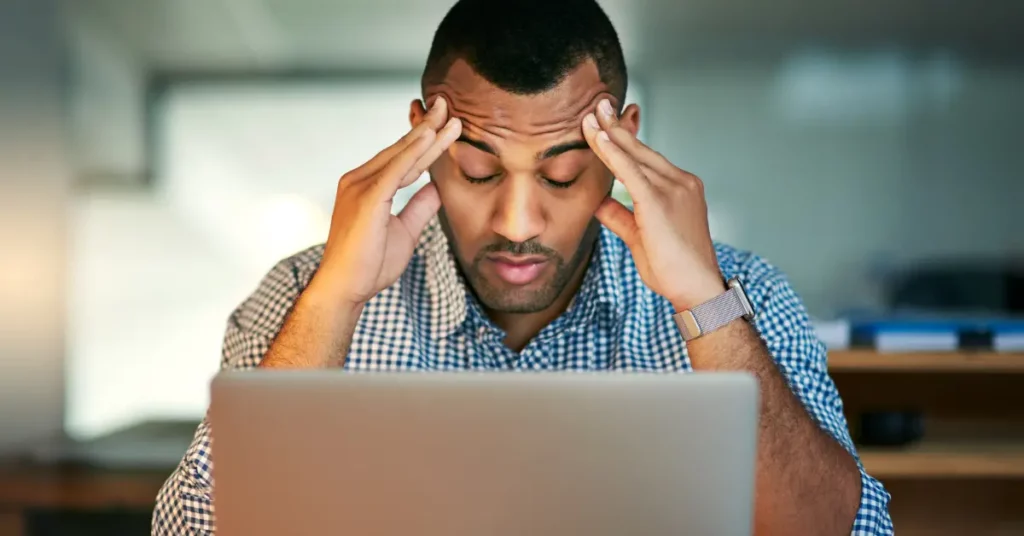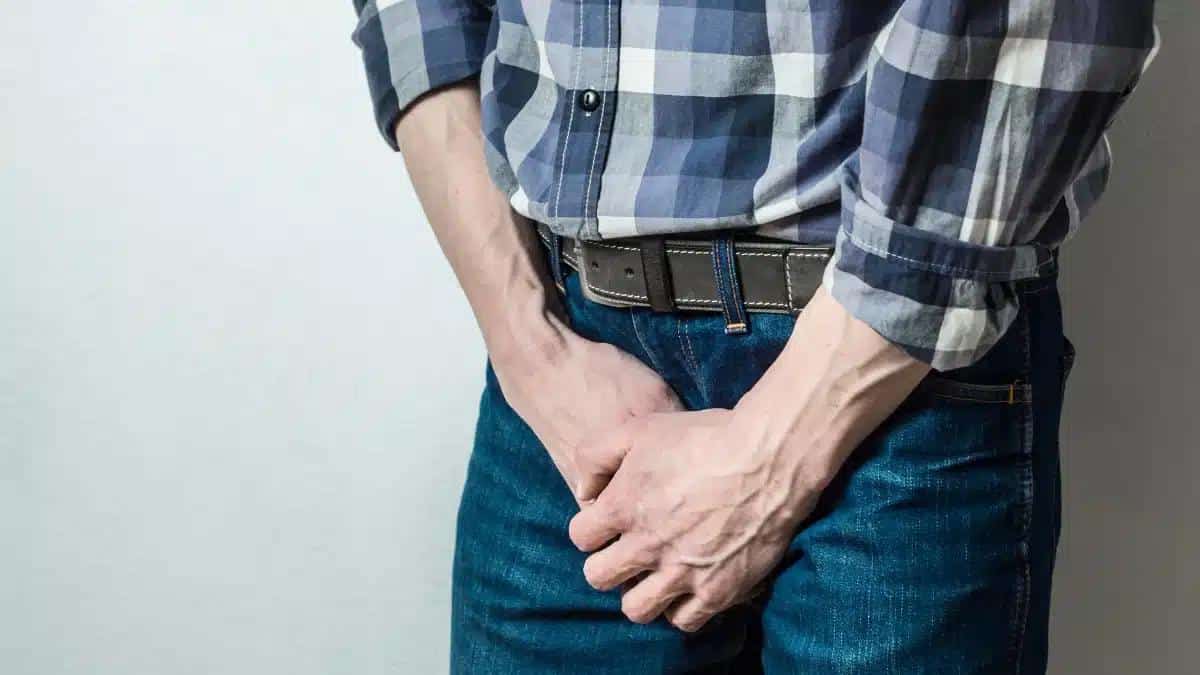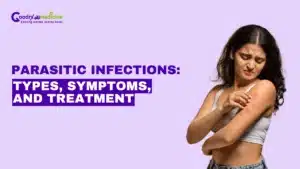The term “libido” is widely used to describe sexual drive or a desire for sexual activity.
Modern healthcare professionals see libido as one of the most important indicators of overall health and quality of life.
Libido naturally varies among individuals and may change throughout your life.
Low libido, also known as low sex drive, is a decline in the frequency and intensity of your sexual desire from when you first felt it.
It’s quite prevalent and might be temporary or permanent.
A complex mix of biological, psychological, and social factors influences libido.
Sex hormones and neurotransmitters govern libido in biology.
This article will review the possible reasons and symptoms of low libido in men and women.
We will also enlighten the possible ways to overcome low libido.
What is low libido and its causes
 Source: Peopleimages_From_Getty_Images_Signature
Source: Peopleimages_From_Getty_Images_SignatureA lack of desire for sexual activity is called low libido, often known as low sex drive.
It is a prevalent issue that may affect both men and women at different stages of their lives.
People with low libido may not desire physical closeness during sexual relations and struggle to start or participate in sexual intercourse.
Several factors can cause low libido in both men and women.
These are as follows:
- Chronic medical disorders such as Diabetes, Osteoarthritis, heart disease, Hypertension, and Obstructive Sleep Apnea.
- Cancer therapy
- Medications for high blood pressure, enlarged prostate, antipsychotics, and antidepressants.
- Excessive alcohol consumption and drug abuse.
- Psychological factors include depression, stress, Anxiety, and relationship problems.
- Hormonal irregularities such as low testosterone.
- Increased age
- Fatigue and exhaustion
In women, low libido can be seen during pregnancy and menopause.
What are the symptoms of low libido
Low libido, also known as low sex drive, can emerge as a variety of symptoms suggesting a lack of interest or desire for sexual activity. symptoms of low libido
These symptoms can affect both men and women and can be caused by a combination of medical, psychological, and emotional factors.
Some common symptoms of low libido include:
- Reduced desire for sexual activity
- Having less sexual desires or sexual thoughts
- Having trouble getting aroused
- Lack of sensitivity to sexual stimulation
- Dissatisfaction or psychological distress
- Feeling dissatisfaction because of a lack of sexual desire.
Symptoms of low libido in men
Men with low libido or sex drive may exhibit various signs that point to a diminished interest in or desire for sexual engagement.
These signs consist of:
- Reduced sex desire
- Erection Dysfunction
- Low sperm count
- Difficulty in sustaining erections
- Fewer spontaneous erections
- Reduction in morning erections
- Problems in relationships
Recommended read: Exploring The Symptoms, Causes, And Treatment Of Weak Erection
Symptoms of low libido in women
Symptoms of low libido in women include:
- Having no interest in any sort of sexual activity, including masturbation
- Lack of sexual activity or fantasies
- Intercourse pain
- Changes in the menstrual cycle
- Fatigue and a lack of energy
Can low libido be treated
 Source: GoodLifeStudio_from_Getty_Images_Signature
Source: GoodLifeStudio_from_Getty_Images_SignatureLow libido may quickly be addressed, depending on the underlying cause.
Treatment techniques will vary based on the individual’s health, age, and the specific reason for the low libido.
Some potential treatments for low libido include medication adjustments, hormonal therapy, counseling, and lifestyle modifications.
Besides this, addressing underlying causes and healthy communication with partner help in curing low libido.
Now, let’s dive in deep to understand these treatments better.
Addressing underlying health issues: If low libido results from an underlying health condition, treating the illness can assist with improving libido.
These include hormone imbalances, thyroid abnormalities, or Diabetes.
Hormone Replacement Therapy (HRT): Under the guidance of a healthcare practitioner, HRT may be advised in circumstances where hormonal irregularities are contributing to low libido.
These consist of low testosterone in males or estrogen and progesterone imbalances in women.
Adjustments to medications: A healthcare expert may alter the dosage or switch to a different prescription if some medications induce low libido as a side effect.
Psychological counseling: Individual or couples therapy with a competent sex therapist can be helpful for low libido if psychological causes such as stress, Anxiety, or relationship problems are causing it.
Lifestyle modifications: Adopting a better lifestyle with regular exercise, balanced eating, proper sleep, and stress reduction might improve libido.
Communication: Improving communication with a partner, trying new ways to enhance closeness, and addressing any relationship concerns may all help increase sexual desire.
Conclusion
A lack of desire for sexual interaction is referred to as low libido or low sex drive.
It is a prevalent issue that may affect both men and women at various stages of their lives.
Men and women may have different symptoms of low libido.
Libido fluctuations are widespread and can be influenced by several factors such as stress, hormonal changes, and relationship issues.
If low libido persists and creates distress or relationship issues, it is advisable to consult a healthcare expert or a sex therapist.
Identifying and resolving any underlying medical or psychological difficulties can enhance libido and sexual well-being.
To effectively manage low libido, treatment choices may vary.
A customized strategy may include treating medical issues, hormone imbalances, psychological concerns, lifestyle variables, and relationship dynamics.
Frequently Asked Questions
What are the symptoms of low libido?
Symptoms of low libido in men include reduced sexual desire, Erectile Dysfunction, decreased frequency of sex drive regardless of the amount or type of sexual engagement, and disappointment with one’s present degree of sexual indifference. On the other hand, women may experience pain during sex and changes in the menstrual cycle due to low libido. However, these symptoms may vary among individuals.
How do I know if my libido is low?
A decline in sexual desire, low sexual desire, regardless of the amount or type of sexual engagement, and concern or nervousness over a lack of sexual desire. These are all signs indicating low libido.
Is it possible to treat low libido?
Yes. Low libido can be treated effectively. Therapy is an efficient way to boost low libido. Individual counseling can assist in addressing negative attitudes towards sex, self-esteem, and secondary reasons for low libidos, such as sadness and Anxiety. Some people might benefit from relationship counseling to work through issues influencing their sexual desire.
Is having a low libido harmful?
A reduction in sexual desire is referred to as low libido. It is a prevalent condition and can be transient or permanent. Libido varies from person to person and can fluctuate throughout a person’s life. However, if a drop in your libido is causing you concern, you should consult a doctor.
What foods boost libido?
Certain foods offer nutrients that might improve your sexual life. Oysters, almonds, seeds, and apples are examples of such foods.
When referencing outside resources, GoodrxMedicine always provides full citations. To learn more about the measures we use to maintain the quality of our content, please review our Content Information Policy.











